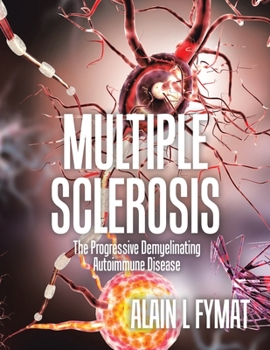Multiple Sclerosis: The Progressive Demyelinating Autoimmune Disease
Select Format
Select Condition 
Book Overview
Multiple sclerosis (MS) is a chronic debilitating demyelinating disease of the central nervous system. It is caused by an autoimmune attack resulting in the progressive loss of the myelin sheath on neuronal axons. The resultant decrease in the speed of signal transduction leads to a loss of functionality that includes both cognitive and motor impairment depending on the location of the lesion. The progression of MS occurs due to episodes of increasing inflammation, which is proposed to be due to the release of antigens such as myelin oligodendrocyte glycoprotein, myelin basic protein, and proteolipid protein, causing an autoimmune response. This sets off a cascade of signaling molecules that result in T-cells, B-cells, and macrophages to cross the blood-brain barrier and attack myelin on neuronal axons leading to inflammation. Further release of antigens drives subsequent degeneration, causing increased inflammation. MS presents itself as a spectrum based on the degree of inflammation. A majority of patients experience early relapsing and remitting episodes of neuronal deterioration following a period of recovery. Some of these individuals may transition to a more linear progression of the disease, while about 15% of others begin with a progressive course on the onset of MS. The inflammatory response contributes to the loss of the grey matter and, as a result, current literature devotes itself to combatting the auto-inflammatory aspect of the disease. While there are several proposed causal links between the Epstein-Barr virus (EBV) and the HLA-DRB1*15:01 allele to the onset of MS - they may contribute to the degree of autoimmune attack and the resultant inflammation - they do not determine the onset of MS.





